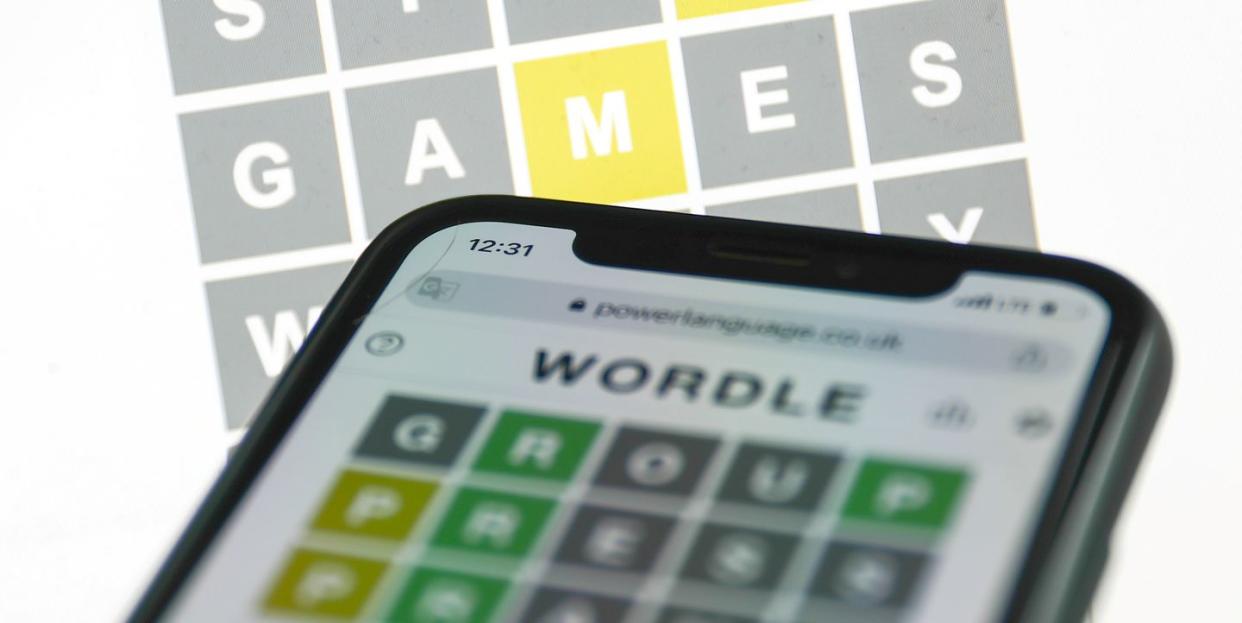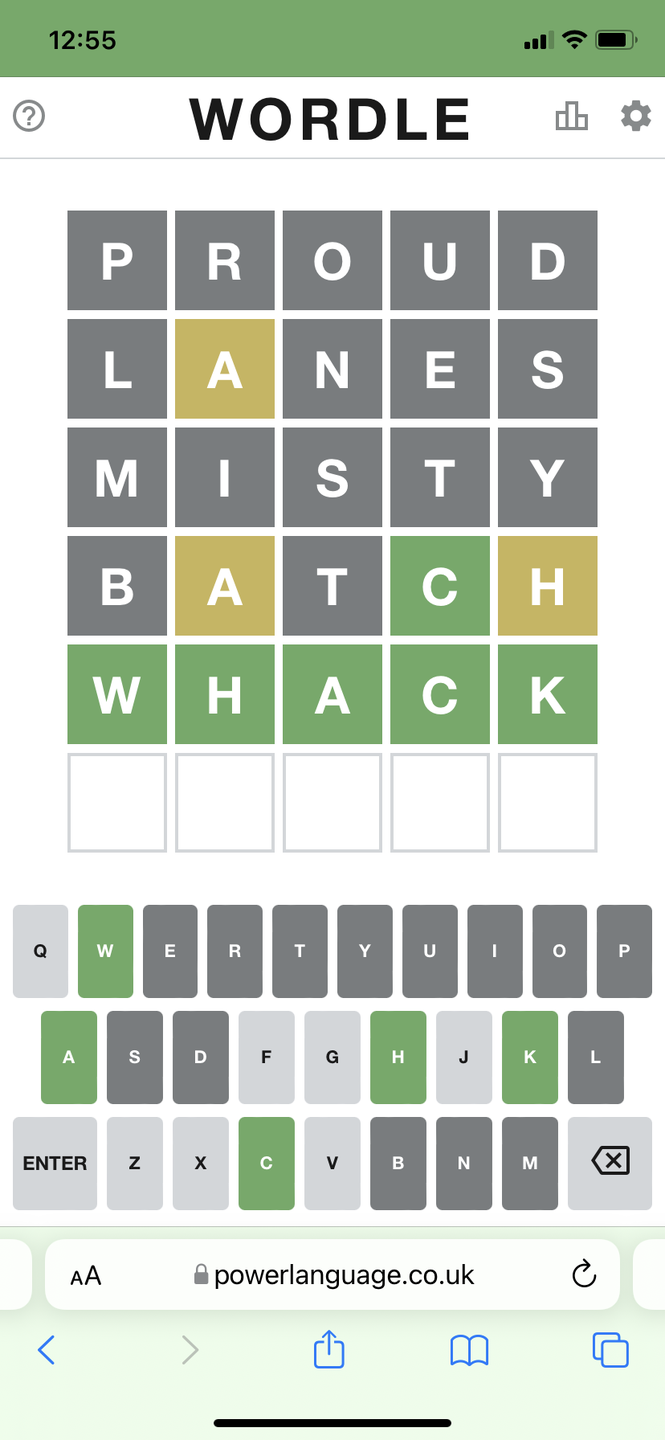Your Wordle Habit Could Actually Boost Your Brain Health

Wordle is an online word game that has officially gone viral, thanks to its simple rules.
New research shows that playing word games isn't just fun—it might actually help your brain work better.
Here's what to know about the Internet's latest obsession (including the tips you need to improve your stats!).
If your social media feeds are filled with rows and rows of green and yellow squares, then you've probably heard of Wordle. The free, online word game is one of the first viral trends of 2022, and players can't seem to get enough.
The rules are simple: Guess the mystery five-letter word in six tries. If a letter turns yellow, it's right, but in the wrong spot. If a letter turns green, it's correct. Gray letters aren't in the word at all.
With one new word to guess every day, Wordle has become a vocabulary-expanding habit for millions of players. But if it's so simple, how did it go viral in the first place? Here's everything to know about Wordle, from its undeniable appeal to the tips you need to up your guessing game:

How did Wordle go viral, anyway?
Created by Josh Wardle, Wordle was originally just a gift for his partner, Palak Shah, per The New York Times. Wardle explained that the game isn't supposed to be addictive, since it's so quick to play. "It doesn’t want any more of your time," he said.
C. Thi Nguyen, a philosophy professor at the University of Utah, posted his own theory about the game's popularity on Twitter. "The first experience a lot of people have of Wordle is: "wait, you just *guess*? But you quickly figure out you can construct your guesses to search the space of letter-possibility, and you probably want to do that thinking about letter-frequency," he explained.
"So the early experience is one of *agency expansion*. Like, you thought you had almost no agency, but you have way more than you thought."
He also pointed out the social aspect behind Wordle: "First, you probably first heard about Wordle when your friends posted these incomprehensible little box-chart graphics. You played it, and now you can totally read this graphics. Cool, now you're in the know," he wrote.
"But the cleverest bit about Wordle is its social media presence. The best thing about Wordle is *the graphic design of the shareable Wordle chart.* There's a huge amount of information - and drama - packed into that little graph," Nguyen continued.
"That's the really special thing about Wordle, I think. I don't know any other game that has nearly as graphically neat a synopsis, where you can just see the whole arc of another's attempt so quickly." (Unless you guess the word on the first try, that is.)
Are there any benefits to playing Wordle every day?
Maybe. One study found that adults over the age of 50 who played word puzzles at least once a day performed better on tasks involving memory, reasoning, and attention than those who didn't. And, the results showed that their brains functioned as well as the brains of people ten years younger.
"We can’t say that playing these puzzles necessarily reduces the risk of dementia in later life but this research supports previous findings that indicate regular use of word and number puzzles helps keep our brains working better for longer," Dr. Anne Corbett, who led the study, explained in a press release. So guess away!
Okay. But how do I up my Wordle game?
Ready to supercharge your Wordle skills? These tips will take your game to the next level:
Use common letters. It might seem obvious, but packing your first guess with the most common letters is a surefire way to get off to a great start. One analysis found that the letters e, t, a, o, i, n, s, and h have higher frequency rates, so consider words like "saint" and "hates."
Keep bigrams in mind. A bigram is a pair of letters, and certain pairs are more common than others. If you're stuck with too many letters to choose from, try a popular pairing—the most used are "th," "he," "in," "en," and "nt," the study found.
Shake up your usual starter word. Everyone has a different Wordle strategy. If you're someone who always sticks to the same first guess, try something new. The possibilities (and letter combinations) are endless!
You Might Also Like

